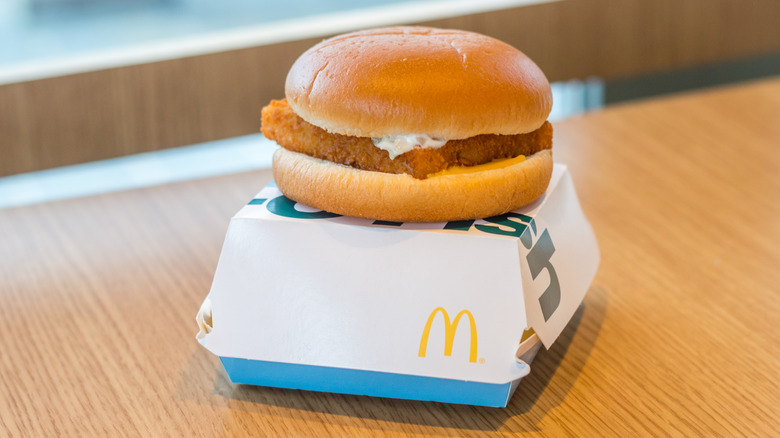Is There An Actual Difference Between A Filet And A Fillet?
We may receive a commission on purchases made from links.
Sometimes in the kitchen, a misspelling or mispronunciation can make all the difference. A mandolin is a musical instrument, while a mandoline can help you make cucumber salads. But sometimes the differences are fuzzier. You've likely seen two spellings describing the act of removing meat from its bone or the resulting boneless cut: "fillet" and "filet." But is there actually a difference? As is so often the case the answer is yes, not really, and maybe. The words mean the same thing, but one spelling is more common than the other, depending on where you live and what kind of meat you're discussing.
"Filleting" (or "fileting"), as a verb, is the act of carefully separating the meat from the bone, whether it refers to fish, chicken breast, or common steak cuts. Using a sharp knife — like the 7-inch knife from Shan Zu — cuts are made to both easily remove the bone and create a presentable cut of meat (a filet or fillet). With fish, it can also refer to a specific presentation called "butterflying," where the backbone is removed and the finished filet is one piece rather than two (when you butterfly a chicken breast, it's already a boneless filet).
Filet or Fillet? It depends
It isn't often there's a legitimate reason for articles to turn to dictionary definitions, but here it can shed some light. The "Official Scrabble Dictionary" defines the verb "filet" as "to fillet" and "fillet" as "to cut boneless slices from." The Associated Press uses "fillet" while pointing out that McDonald's Filet-O-Fish and beef filet mignon are things. Meanwhile, good old Merriam-Webster notes that "filet" is from a French word for a bit of netted lace. "Fillet" ("2b: a piece or slice of boneless meat or fish") derives from the Middle English word "filet," and the Middle French word "fil," meaning "thread." In France, it's "filet" ("fillet" doesn't exist).
Thus the first reason there are different spellings is geographic. In the UK, "fillet" is preferred. In French-speaking countries, you'll see "filet." In the United States, it's anyone's guess, though "filet" seems more common. Spellcheck will suggest you switch to British English from American if you prefer "fillet."
The second reason refers to cuts of meat. Along the way, a sort of standard was set that "filet" refers to beef, while "fillet" refers (usually) to fish. Filet mignon, a cut from the tenderloin, is always spelled that way. One fillets salmon and serves up fish fillets, according to many in the fishing industry. Interestingly, McDonald's Filet-O-Fish has been spelled that way since its introduction in 1962. In the end, it's up to you. You'll be correct whichever way you slice it.

